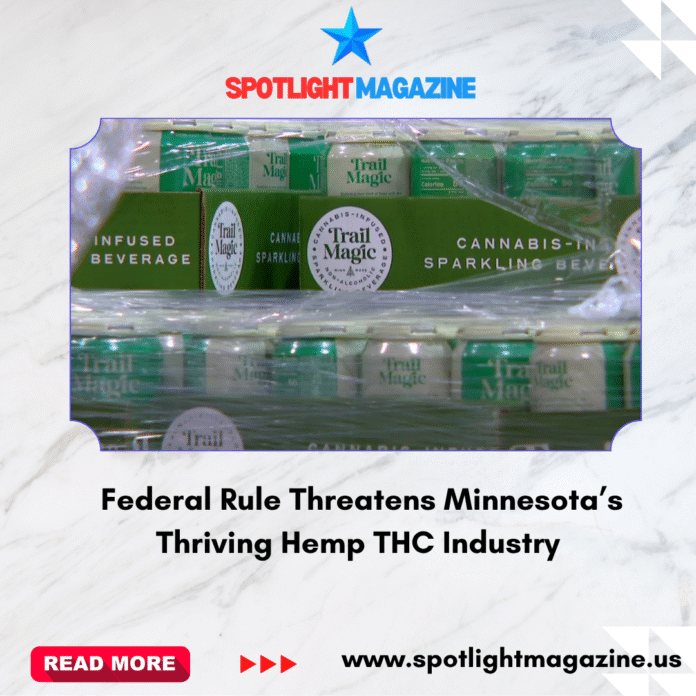Congress passed a new provision this week as part of the agreement to reopen the government, and it has created serious concern for Minnesota’s fast-growing hemp industry. The change would sharply restrict hemp-derived THC products by altering the federal definition of hemp. Under the new rule, any product containing more than 0.4 milligrams of THC would no longer qualify as hemp, effectively banning the drinks and edibles now sold across Minnesota and many other states.
Most hemp beverages in Minnesota contain 5 milligrams of THC per serving, and some drinks have up to 10 milligrams per can. These products have become extremely popular, filling store shelves and giving breweries and small businesses an important new source of revenue. Because of that, many producers say the federal change would devastate an industry that has expanded rapidly since 2018.
Jason Dayton, the cofounder of Minneapolis Cider Company, says the impact would be enormous. His company produces Trail Magic, a hemp-derived THC beverage sold in 24 states. Dayton explained that his cidery, like many breweries recovering from the pandemic, turned to hemp beverages for stability and growth. A Minnesota law passed in 2022 legalized low-dose hemp THC products under certain rules, which opened the door for breweries to enter the market legally. The 2018 federal Farm Bill had already removed hemp from the list of controlled substances, allowing THC and CBD products to be sold nationwide as long as they came from hemp.
According to Dayton, the success of hemp drinks transformed his business. They sold 3 million cans last year, and the product helped move the company from a small local operation into a national brand. He believes the new federal restriction would wipe out the industry completely by removing the legal pathway that allowed hemp companies to operate across state lines. Hemp products have benefited from their federal legality because they can be shipped nationwide and are not subject to the same strict banking and tax limitations that still affect marijuana.
If the federal definition changes, businesses would face serious challenges. Even though Minnesota’s own law would still allow low-dose hemp THC products to be sold within the state, Dayton says they would likely only be available in licensed cannabis dispensaries rather than in liquor stores, breweries, or restaurants. That shift would immediately cut off many customers, and it would also make it impossible for companies to continue national distribution. To keep selling in states where hemp drinks remain legal, businesses would have to manufacture products in each of those states separately, which Dayton says is not financially realistic. Nearly half of Trail Magic’s sales come from outside Minnesota, so the loss of interstate commerce would hit them hard.
Other Minnesota producers share similar concerns. The hemp industry has generated more than $350 million in retail sales over the past three years in Minnesota alone, bringing in almost $40 million in tax revenue. That growth has created jobs, new partnerships, and a major new sector within Minnesota’s beverage and wellness markets.
Leili Fatehi, owner of Crested River Cannabis Company, said most of her customers are based in Minnesota, but her company also bottles drinks for national brands. The federal change would still hurt her business by halting national distribution. She also worries about the impact on banking and taxes if hemp companies are forced into the same regulatory category as marijuana. Still, Fatehi says she is not making sudden changes and remains hopeful, noting that many distributors and retailers also seem optimistic that Congress will revisit the law.
Dayton agrees, saying he believes lawmakers will face pressure to repeal the provision before it takes effect next year. He hopes that once people understand how many jobs and businesses would be harmed nationwide, Congress will reconsider.


